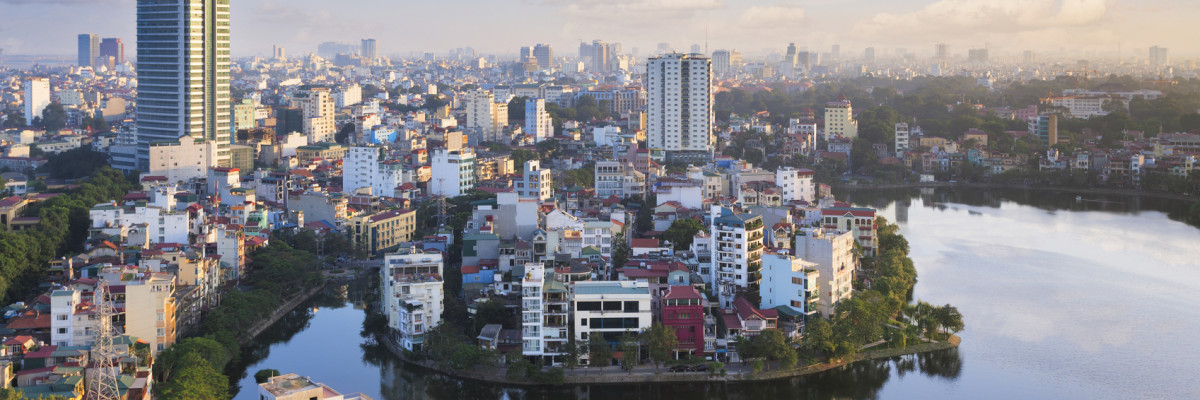
(Pictured above: the skyline of Hanoi, Vietnam)
Vietnam is poised to become one of the stand-out success stories of the Trans-Pacific Partnership, with exports growing 11 percent, or $36 billion dollars over the first decade. With very low labor costs, the removal of import tariffs from the US and Japan, Vietnam also expects a 50% increase in the export of footwear and apparel, which should increase investment capital from foreign companies. As expected, the TPP will lessen the burden of tariffs on trade between all countries, making it easier for the US to move Made-in-America exports and thus helping small businesses benefit from the trading. There will be an increase in transparency and regulations to allow more US companies to engage in trade with the Asian Pacific.
While Vietnam is the only communist nation involved in the TPP, they are the fastest growing economy involved in the TPP and the least developed nation. To be involved in the agreement, Vietnam will raise labor standards, eliminate child labor and forced labor practices, develop minimum wage practices, union formation, and end any current labor discrimination policies. The TPP will increase oversight on workers’ rights and labor issues in developing countries and install measurable and enforceable labor standards for all workers in countries covered by the TPP.
Expecting such enormous growth into and out of Vietnam as a result of the TPP, Everglory Logistics is strategically placed. With a solid trucking network into and out of Vietnam and a strong working history with this market, we’re ready to assist with all import and export opportunities that arise during the finalization of the Trans-Pacific Partnership. We’re on hand, on the ground and specifically aware of the logistics acumen needed to facilitate moving your Vietnamese cargo.
All we now need is ratification of the agreement, which must happen as a straight up-or-down vote in the United States Congress. Given our current political climate in the United States, signs are that legislative priorities such as this will not be tackled until after the general election in November and will be left to the “lame duck” session of Congress between the end of this session and before the new one takes office in January.







